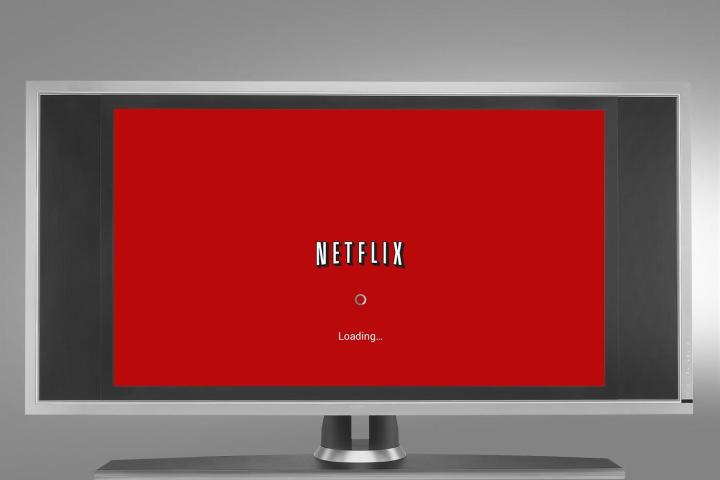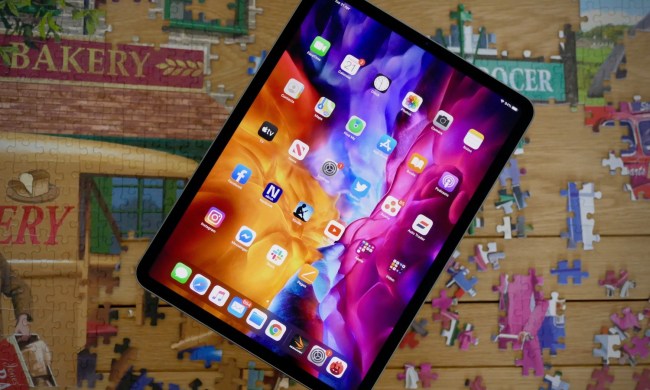
And so it begins. Right on the heels of a highly publicized deal in which Netflix agreed to pay Comcast an undisclosed fee for a more direct link to its Internet pipelines, Verizon and AT&T representatives have claimed that similar deals between their services and Netflix are also in the works.
The news doesn’t come as a huge surprise, and is a sign of the crossroads that Netflix and the major Internet Service Providers are sitting at.
While many immediately cried foul at the precedence the seemingly unholy deal struck between Comcast and Netflix could create, this tumultuous new landscape of pay-to-play between Big Red and the major ISPs has reportedly been in the works for some time. In fact, in a recent interview on CNBC, Verizon CEO Lowell McAdam claims Verizon and Netflix have been in negotiations over the issue for a year.
The situation really began with a very simple problem: Netflix became too damned popular. As Netflix streams started eating up more and more bandwidth, taking up as much as 31.6 percent of all North American internet traffic at peak hours at last count, the company realized it was going to have to find a more efficient way to pump its content into our TVs, computers and mobile devices.
The solution Netflix came up with is called Open Connect which, at its core, is a way to store its most popular content on in-house servers closer to ISP delivery channels, allowing that content a much more direct pathway to the homes of all those millions of viewers. As Reuters reported, ISPs like Google Fiber, Cox and Cablevision all got on board with Open Connect, and have seen little to none of the Netflix speed issues that have plagued much of the Nation as of late.
However, some of the biggest providers like Verizon, AT&T, Comcast, and Time Warner, refused to play ball with the Open Connect system. That is likely one of the major reasons unhappy customers everywhere saw Netflix streaming speeds take a nose dive recently.
Of course, another reason could be the DC court ruling for Verizon in January, in which the FCC’s ability to enforce Net neutrality in its current form was struck down. The verdict opened the possibility for ISPs to essentially sell their fastest service to the highest bidder, creating fears that fair play online could be seriously threatened. Those fears weren’t helped by the latest Netflix ISP Speed Index Report that came out in the same month as the verdict, showing grinding streaming speeds from many of the same companies who fought against Open Connect.
Since then, accusations that Verizon and others are intentionally ‘throttling’ Netflix streaming speeds to extort money from the company like a mafioso thug have run rampant. A prime example came from a blog post by David Rapheal, showing a screen shot of a chat in which a Verizon employee admitted the company has been intentionally slowing Netflix streams as of late. For its part, Verizon completely denies any throttling of Netflix, or any other streaming service.
Either way, it seems money, not time, heals all wounds. The ISPs seem to have gotten what they wanted. And on the other side of the equation, Netflix is apparently brokering deals with the Open Connect holdouts it can live with. Still, since we don’t know how much Netflix is paying for its shortcuts on the information superhighway, a lot of questions remain.
One you might be asking right now is whether or not these ISP payment plans will be passed on to you, the consumer. And if not now, who knows whether the agreed upon fees will go up in the future and cut into Netflix’s bottom line. But perhaps the bigger question is: What does this mean to everyone else in business online? Sure, the biggest streaming site in the world can afford the toll, but what about new start-ups looking for their share of the streaming market place?
For now, we just don’t know the answer to these questions. What we do know is, ostensibly, the way business is conducted between ISPs and video streaming services just took a huge left turn. All we can do now is wait and see where this new road leads.


